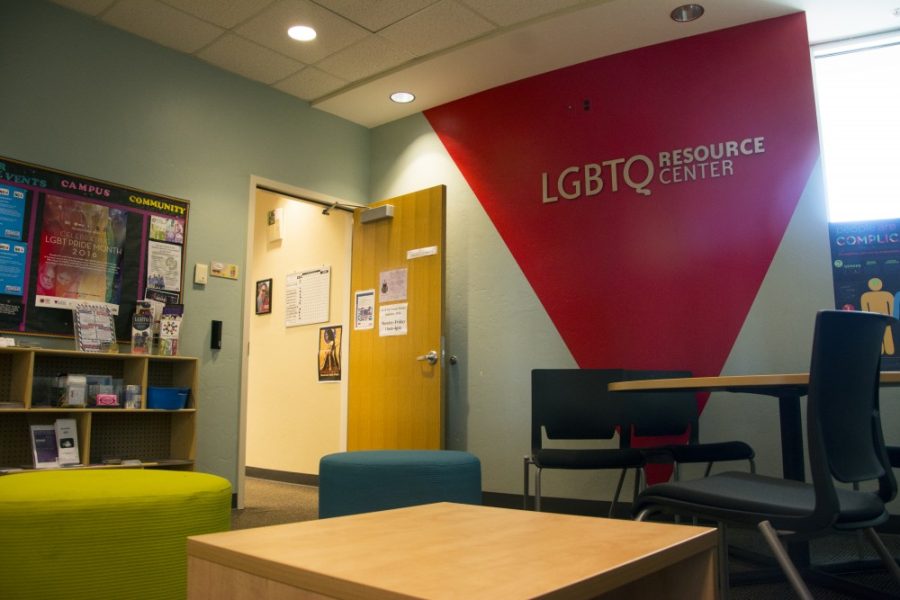Pride Law and Southern Arizona Gender Alliance are putting on a clinic to assist transgender and gender-nonconforming individuals in changing their names or gender markers on official documents Nov. 15 and 17.
The clinic does this to help people align the gender presented on their government IDs, drivers licenses and other documents with how they identify. It will take place at the University of Arizona College of Law at 1201 E. Speedway Blvd. Nov. 15 from 6-8 p.m. in Room 102 and Nov. 17 from 10 a.m. to 1 p.m. in Room 114.
Pride Law is a group of law students in the University of Arizona James E. Rogers College of Law that have an interest in legal issues regarding LGBTQ rights. It’s also a club that brings together people from the LGBTQ community.
“We’re just a group of LGBT folks and allies that want to spend time together,” said Ashley Daltrey, president of Pride Law.
The biggest event they hold is the Name & Gender Marker Change Clinic. This year it will be held in both the fall and spring. According to Daltrey, this is the fifth year the clinic has been hosted and the first time they have decided to do it twice in one year.
RELATED: LGBTQ+ fraternities/sororities balance exclusivity with inclusivity
Angie Menard, a previous Pride Law president, came up with the idea of hosting a clinic that helps people file paperwork to change their names on legal documents. She got in contact with Abby Jensen, vice president and member of the board of directors for the Southern Arizona Gender Alliance, to create the clinic.
“It was a big success the first year, and we’ve been doing it every year since,” Daltrey said.
At the event, people are assisted in filling out documents that will allow them to legally change their names and their gender markers.
Jensen, an attorney, is there to tell people what to do after the clinic, as they have to take the papers to the courthouse to get their government documents changed. The clinic helps people fill out the forms to make sure everything is correct. Jensen then looks over them and explains the next steps that need to be taken.
With controversy surrounding the rights of the LGBTQ communities under the Trump administration, such as the push to create strict, biological gender identifications at birth, members of both Pride Law and SAGA said they think the clinic is very important for transgender people.
“There’s been a lot of anxiety in the trans community ever since President Trump was sworn in about the ongoing ability to obtain proper documentation and whether those things will be honored by the government,” Jensen said.
Manuel Rodriguez, coordinator for LGBTQ Affairs on the UA campus, said that being supportive is one of the best things people can do. Although UA LGBTQ Affairs doesn’t work at the clinic, they are advertising the event and support the work of Pride Law.
“It’s not always the easiest to support people who are different than you, but I think it’s important to listen, first and foremost, to what those people who have different identities than you need, and one of the needs is the gender marker change on identities and name change,” Rodriguez said.
Pride Law members help out at the clinic by making sure documents are filled out correctly. They are students planning to go into law, and this event shows them how law can effect and help people.
“It gives the students a first taste of the wonderful, potential power of a law degree – what you can do through legal action,” said Barbara Atwood, law professor at UA and co-director of the Family and Juvenile Law Certificate Program.
Atwood got in contact with Jensen a few years ago to have her give a presentation to some different law groups. From there, Jensen met with Pride Law and was able to start the clinic.
Atwood, although not involved with the clinic herself, has had past students who worked at the clinic. She said the students who participated have told her that the event was very gratifying and it helps them understand how getting a law degree will allow them to help individuals.
RELATED: Study finds transmasculine adolescents are most at-risk for suicide
Daltrey said that although IDs seem like such a small issue for cisgender people, it can be very scary to have to present something that doesn’t match the gender someone aligns with.
“I think that people in the community need to just be aware that it’s difficult for folks, and things like this clinic are one way that we can give back and try to help the community fix those issues … It seems small to us, but for them it’s a huge difference,” Daltrey said.
To help out or get more information on the event, email pridelawarizona@gmail.com.
To find step-by-step instructions and the forms needed to change your gender marker on your own, click here.
Follow Quincy Sinek on Twitter








